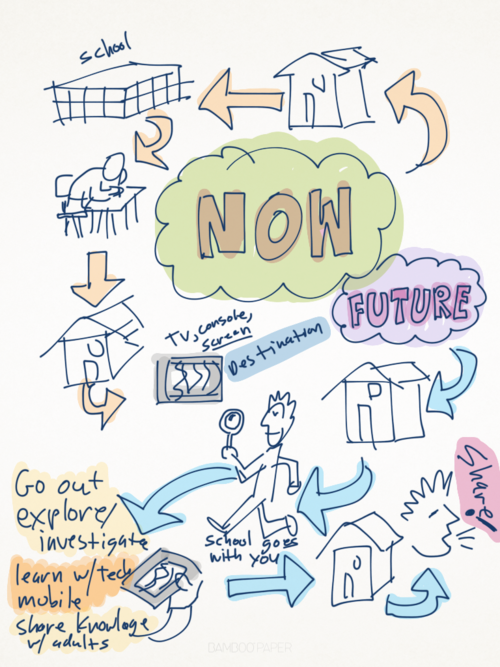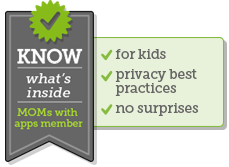As I slowly return to development (after focusing for months on our client work), I couldn’t help thinking about how we use technology today as in the workplace vs. how we use it in learning.
For kids in school, screens are still a destination. For adults, however, we tend to integrate technology as tools throughout our day. I could totally see learning and play for kids working this way in the near future.
Kids would head outside with the classroom in their pocket, exploring the world and sharing what they learn with others (including adults!).
This thinking is what is fueling the next generation of apps we are currently designing at Kidoodle Apps – creative and fun tool for kids that take them out of the screen and into the world.
What do you all think?
via Kidoodle Labs (As I slowly return to development (after focusing…).







So schools (properties) as we now know them cease to exist. (what to do with valuable land/buildings) Teachers only accessible online. (I can picture a Houston-esque command like center) Is this the scenario you see Mike?
My question is how are children’s social skills developed?
good questions Bruce, a more holistic approach to educating and growing people requires a balance of things we dont really have today. for example: a child might have devices at their disposal so they can pull up or look up or capture or create at any time, they could learn at any moment of the day as well as explore. much of the rote learning that is so detrimental to kids today would go away because it isn’t helpful. schools as we know them today would go away in favor of more camp-like and less scheduled systems that teach collaboration (the stuff kids dont learn in school but is probably the most important skill to have as an adult) as well as social interaction through team projects. kids learn at their pace, then meet up in groups to tackle team projects, then they can go away again and continue to earn and grow outside of the confines of rows and rows of seats. much m ore organic and akin to what they will find when they eneter the adult world of learning, working, and collaborating.